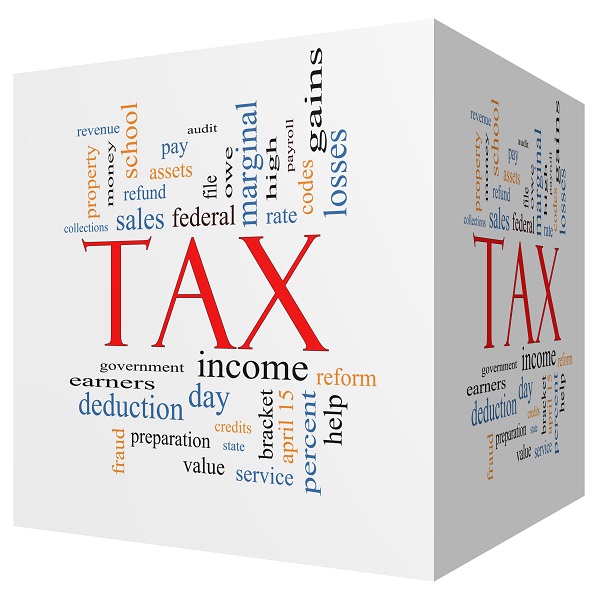CLE Presentation by Shamsey Oloko
AN ANALYSIS OF THE TAX CUTS AND JOBS ACT
January 2018
AN ANALYSIS OF THE TAX CUTS AND JOBS ACT
On December 22, 2017, after much, well-publicized legislative skirmishes, President Donald Trump signed into law H.R. 1, otherwise known as the “Tax Cuts and Jobs Act.” Provisions affecting individuals are generally effective beginning December 31, 2017 and expire on December 31, 2025. Most business-related provisions are permanent and are effective beginning December 31, 2017.
This new law is, by all accounts, the most significant revisions to the U.S. tax code since 1986, affecting almost all individual and business taxpayers. Our firm’s general assessment of the new law will therefore be a two-part series: this first part covers changes to individual taxpayers, and the second part will cover changes to business taxpayers.
Trump’s Tax Plan Then And Now, Part 1
What specific tax plan will Donald Trump implement as President of the United States? Trump’s initial plan released in September 2015, set forth four tax brackets of 0%, 10%, 20% and 25%. In October, just prior to the election, he released a new plan that adopted the House Republicans’ approach using three tax brackets, 12%, 25% and 33%. Either plan seems to adopt aspects of the tax reform pursued by House Republicans, as the president-elect moves closer to the Republicans’ tax agenda. Here’s a look at Trump’s tax plan then and now.
President Trump’s 2005 Tax Returns – What It Tells Us
President Trump’s 2005 Tax Return – What It Tells Us
Yesterday, Tuesday March 14, 2017, while most of the New England area was buried in snow, MSNBC published President Trump’s 2005 income tax return – or at least the first two pages of it. What does the return tell us and what does it not?
The Basics – We know he had a positive income in the amount of $152,737,866 and $103,201,242 in tax write-offs. He paid a total of $38,435,451 in taxes for the year.
Seven Deadly Tax Sins
7 Deadly Tax Sins
When it comes to the IRS, some bad acts are worse than others. We have compiled below the top ones to avoid at all costs. However, if you should find yourself in the middle of one, you should certainly call tax attorneys to get you out of the bad situation (yes, it is a bad situation).
Possible Scams And Current Events: IRS Warns Consumers of Possible Scams Relating to Orlando Mass Shooting
The IRS recently issued a consumer alert about fake charity scams that may cultivate from the mass shooting in Orlando, Fla., and encouraged taxpayers to avoid unknown entities and instead seek out recognized charitable organizations. The IRS provides easy to use online tools for taxpayers to check the status of charitable organizations when making a charitable contribution. There are simple steps that taxpayers are recommended to take when making charitable donations like those made to provide relief to victims of the Orlando tragedy.
Finally! Congress Enacts Tax Extends Part 2
The Consolidated Appropriations Act of 2016, enacted Dec. 18, 2015, extends a long list of expired tax provisions into the future. Unlike past extension legislation, Congress extended many provisions permanently. In more traditional fashion, some of the others were extended for five years, and many for two years. The Joint Committee on Taxation estimates that the total cost of the tax provisions in the bill will be $622 billion over 10 years.
These tax breaks include but are not limited to savings for teachers, parking and transit benefits, and certain charitable contributions which will be discussed in this blog. Without Congress extending these various provisions, millions of Americans were in danger of losing these beneficial tax breaks by 2017.
The Most Overlooked Tax Deductions, Part 4
 Many taxpayers overlook the long list of deductions that they may take when completing and filing their tax returns. The IRS has estimated that millions of taxpayers overpay their taxes each year mainly because they fail to avail themselves of all of the possible deductions. The tax professionals at the Thorgood Law Firm can help ensure that all taxpayers take advantage of any and all deductions that may apply to them. Here is the fourth part of our multi-part blog on the most overlooked tax deductions:
Many taxpayers overlook the long list of deductions that they may take when completing and filing their tax returns. The IRS has estimated that millions of taxpayers overpay their taxes each year mainly because they fail to avail themselves of all of the possible deductions. The tax professionals at the Thorgood Law Firm can help ensure that all taxpayers take advantage of any and all deductions that may apply to them. Here is the fourth part of our multi-part blog on the most overlooked tax deductions:
HEALTH, CHILD CARE, AND CHARITY DEDUCTIONS
What Can Voters Really Learn From Donald Trump’s Tax Returns (if they are ever released)
What will we really learn If Donald Trump ever releases his tax returns? While no technical, legal requirement compels him to do so, it is but a time-honored tradition among presidential candidates acting in the spirit of full disclosure. Trump has acted like it’s not a big deal and that little, if anything, will be revealed by any divulgence. If it’s not such a big deal, why doesn’t he simply disclose them like other candidates? What might he be concerned that voters will really learn from the release of his tax returns?
- Trump pays little or nothing in taxes
What A Mess: The Donald And His Tax Returns
In March, Donald Trump’s campaign published a letter written by his tax attorneys explaining the status of his tax returns, an apparent sore subject for the Donald whenever he is questioned about it by the media. Although the letter is dated March 7, 2016, it wasn’t released by his campaign until twenty-three days later. Regardless, he continues to thumb his nose at the time-honored tradition of presidential nominees disclosing their tax returns at some sufficent time prior to the election.

